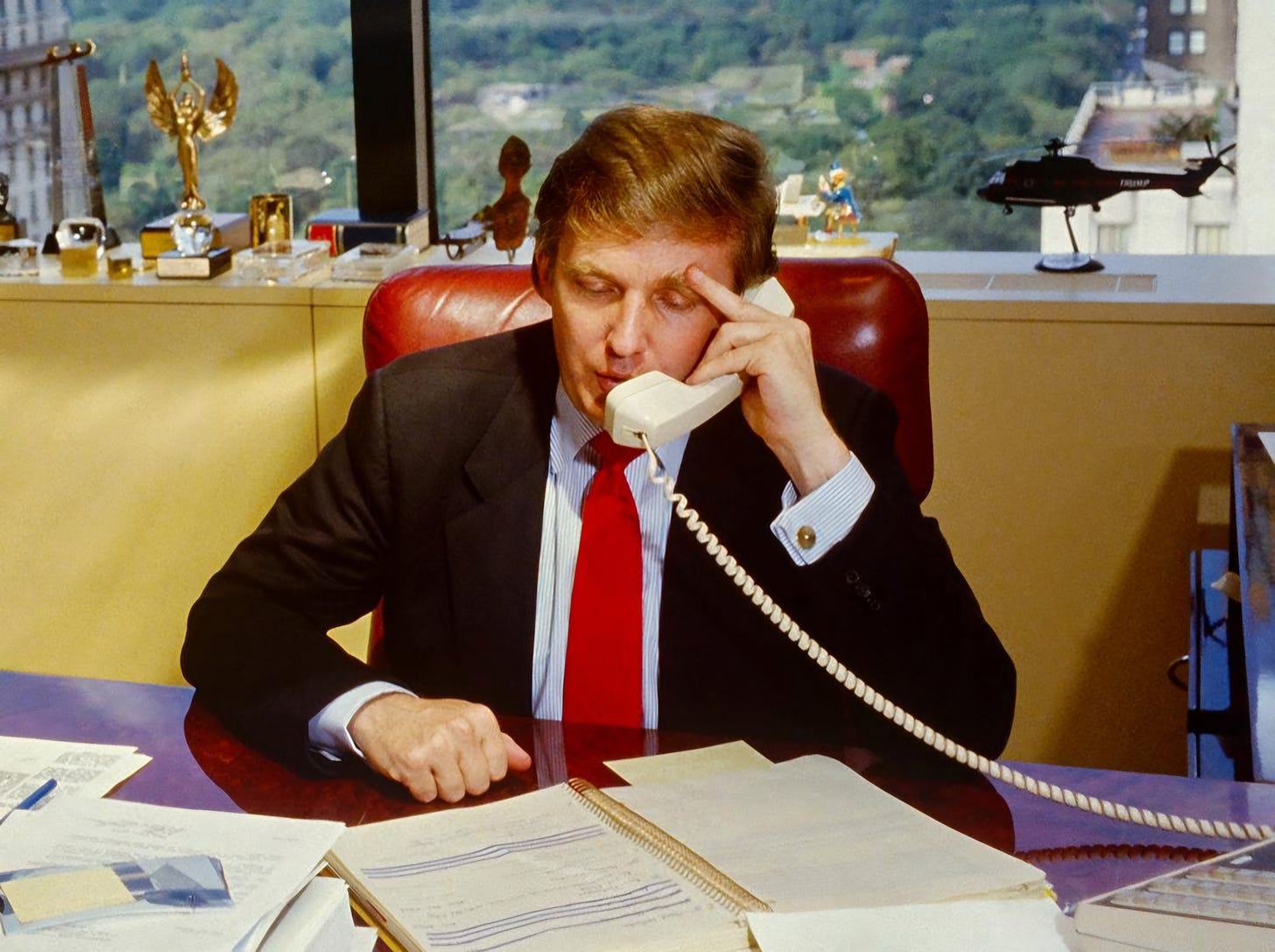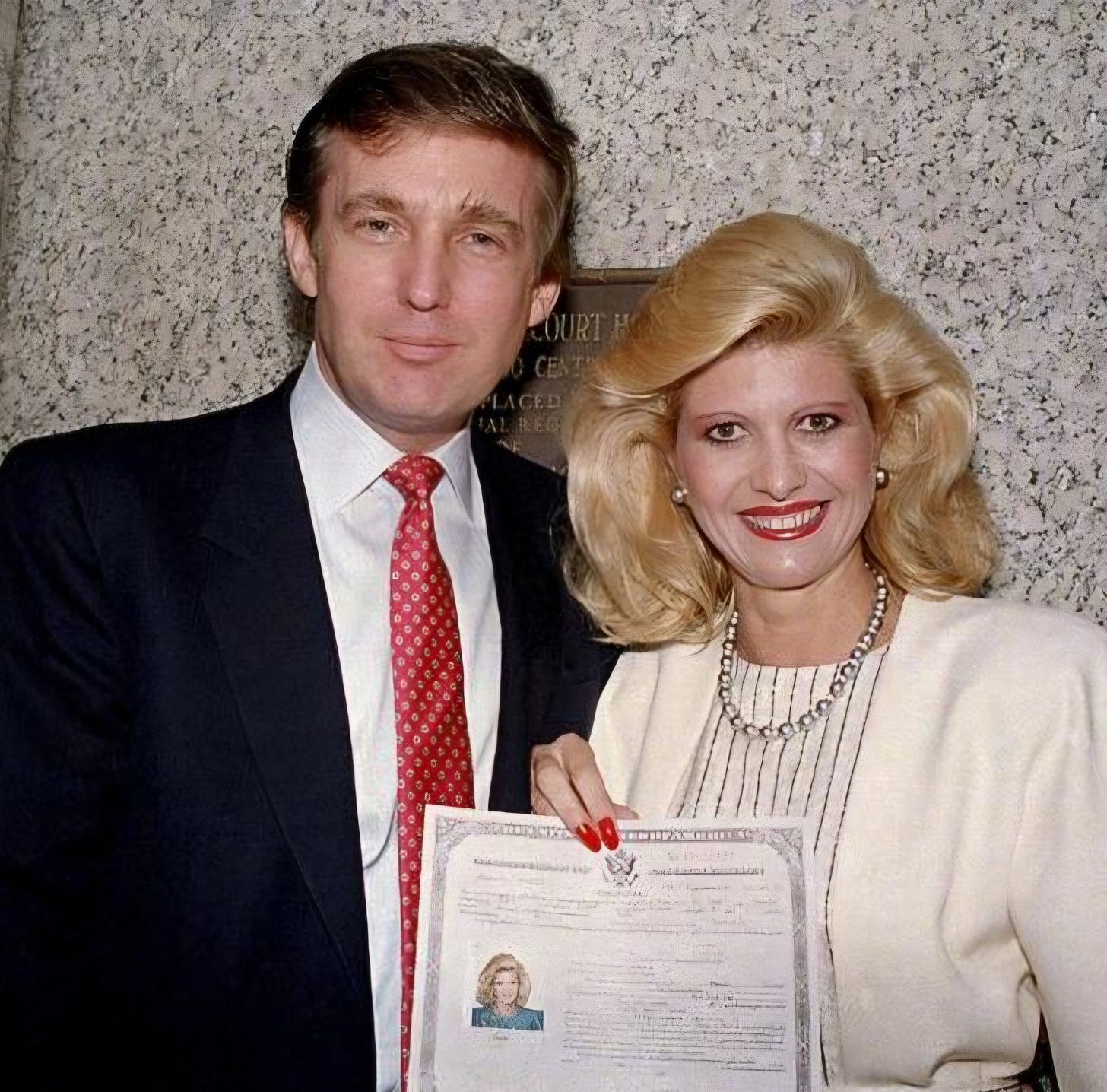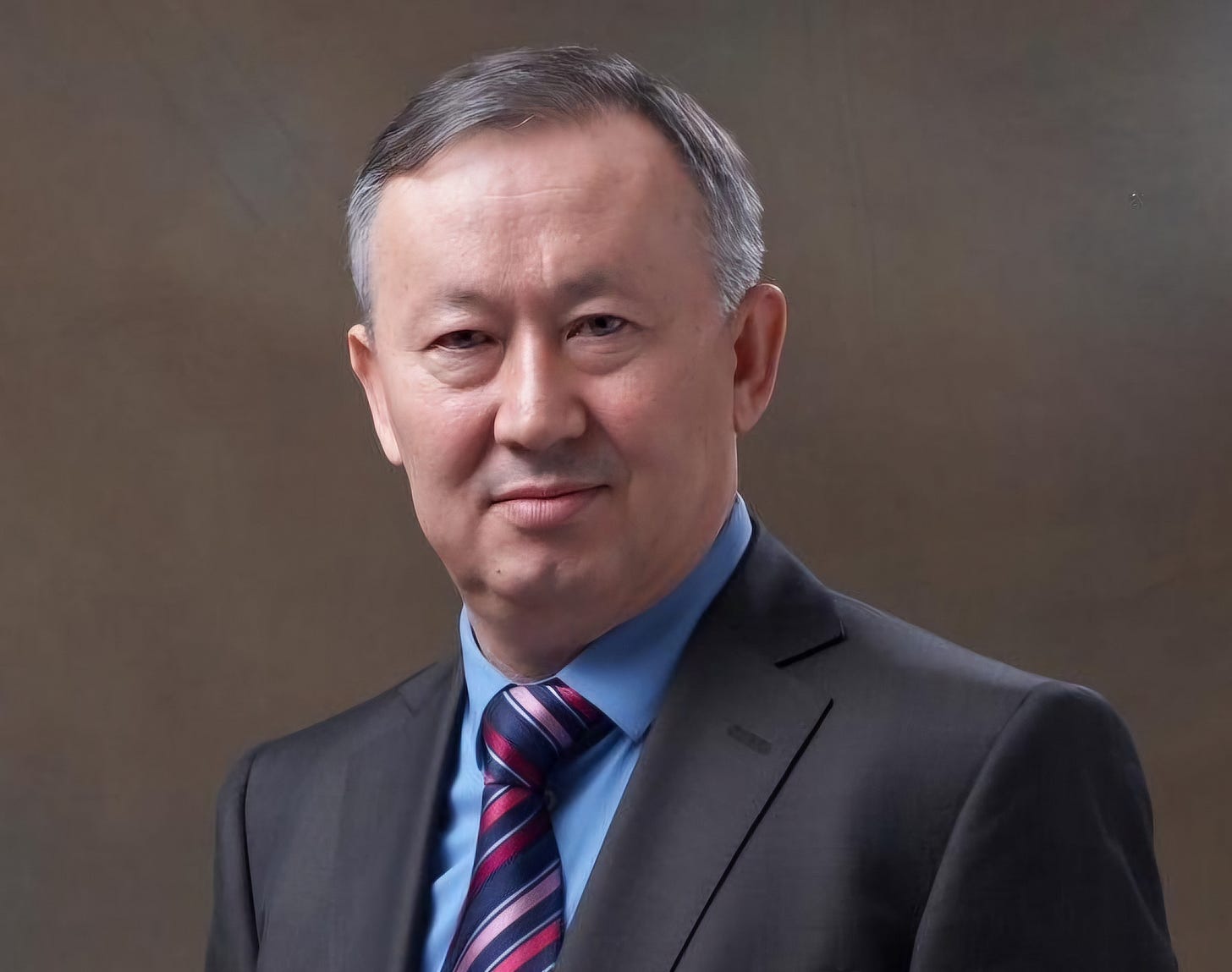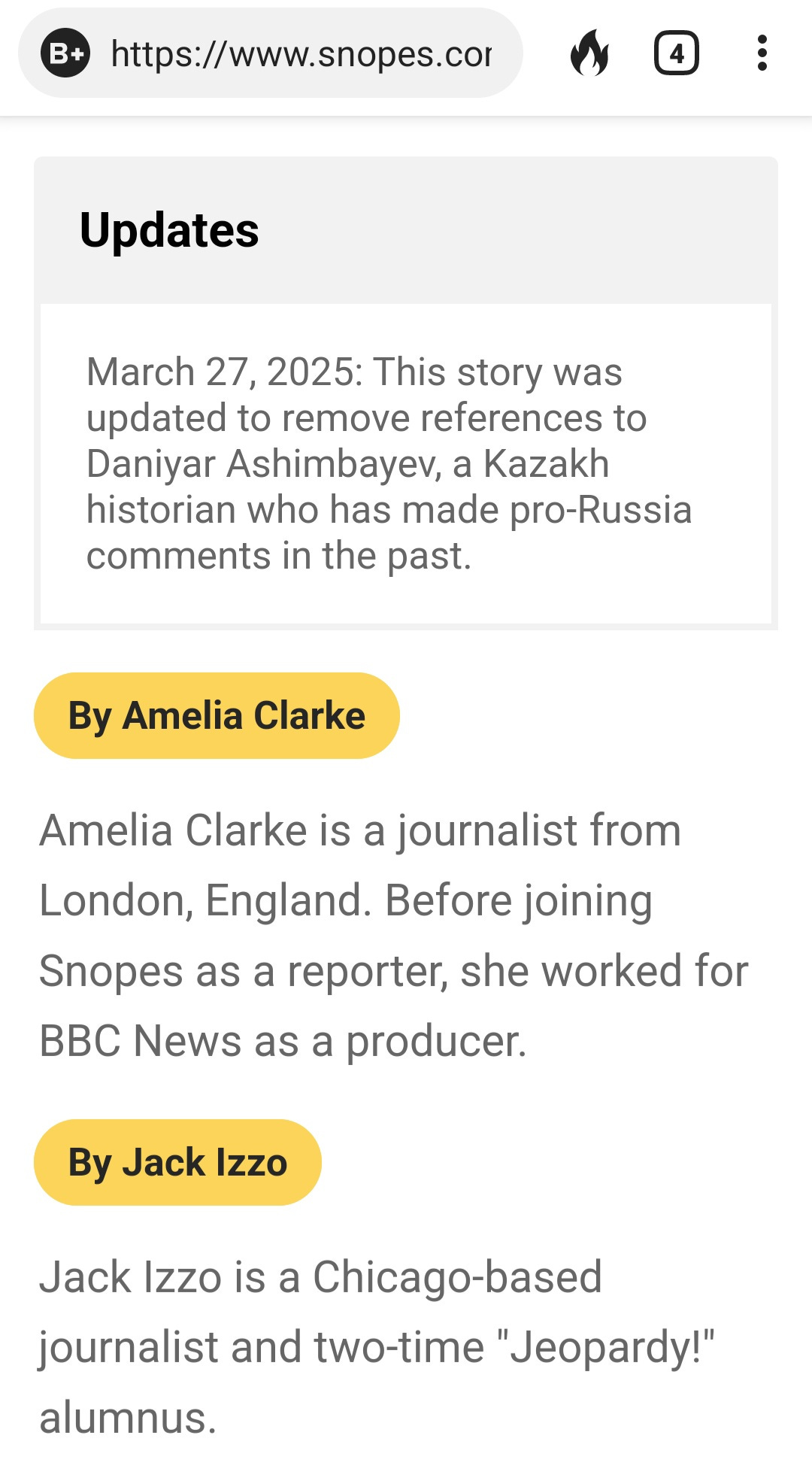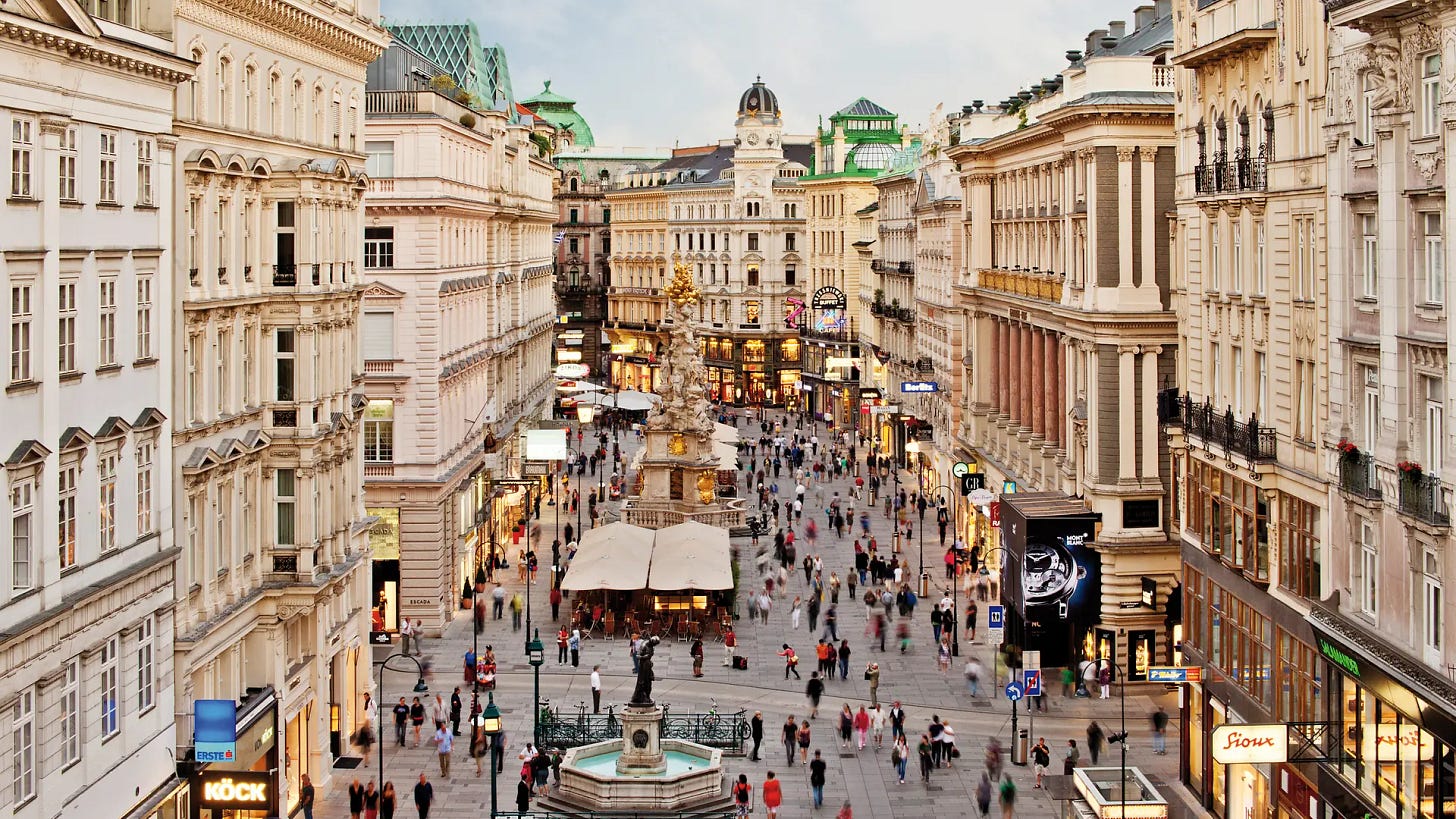THE TARGET
1986. Trump. New York. The beginning of the game.
It didn’t start in Moscow.
It started in New York — in 1986 — when Donald Trump was first approached by Soviet operatives posing as business representatives. According to Yuri Shvets, a former KGB officer stationed in Washington during the Cold War, Trump was identified as a potential asset and cultivated through soft power: flattery, promises of fame, and the prospect of doing business in the USSR.
A year later, in 1987, Trump would fly to Moscow under the watchful guidance of Intourist, the Soviet government’s travel agency and a known KGB front. That trip, Shvets claims, was a “textbook active measure.” Trump was paraded around, given VIP treatment, and gently encouraged to consider a future in politics.
He returned home weeks later and took out full-page ads in American newspapers criticizing U.S. foreign policy and NATO spending — almost verbatim what Soviet officials had wanted. Shvets believes that moment marked the beginning of Trump’s role as a Kremlin asset.
But the targeting may have started even earlier.
Ivana Trump’s father, Miloš Zelníček, was an informant for the StB — the Czechoslovak secret police. He allegedly filed reports on his daughter and her new American husband back to the Communist regime. That made Trump a known entity inside Soviet-aligned intelligence circles.
They were watching him long before he knew it.
THE CLAIM
Codename Krasnov. The post that should’ve changed everything.
On February 20, 2025, a statement appeared online. Not in a news report. Not on cable TV. On Facebook.
“In 1987, I worked in the 6th Department of the KGB of the USSR in Moscow. The most important area of work of the Department was the acquisition of spies and sources of information from among businessmen of capitalist countries. It was that year that our Department recruited a 40-year-old businessman from the USA, Donald Trump … ‘Krasnov’.”
— Alnur Mussayev, former head of Kazakhstan’s KNB
It wasn’t posted anonymously. It wasn’t couched in speculation. It was a direct accusation from a former intelligence chief.
And almost no one noticed.
That sentence should have triggered an earthquake. Mussayev isn’t a fringe actor. He once ran Kazakhstan’s National Security Committee (KNB), the direct successor to the Soviet KGB. He understands codenames. He understands the cost of making claims like that.
He made it anyway.
And then he left it there. No retraction. No follow-up. No clarification.
He let it stand.
The very next day, The Daily Beast reported the story — then quietly deleted the article within hours. Shortly after that, a Daily Kos diarist documented the deletion and linked to Mussayev’s post.
Later that evening, Closer to the Edge published our first breakdown of the allegation, connecting it to Soviet recruitment strategies and long-standing intelligence patterns.
The mainstream media stayed silent.
THE SYSTEM
Why Mussayev can’t go home — and who still owns Kazakhstan.
After breaking with the Nazarbayev regime in 2001, Mussayev fled Kazakhstan and began speaking out about corruption, authoritarianism, and the criminal networks that dominated post-Soviet power. In 2008, he was nearly kidnapped in Vienna — an operation allegedly carried out by Kazakh agents with diplomatic cover. Austrian prosecutors opened a case. It was quietly buried under political pressure.
He’s never returned home.
Kazakhstan, meanwhile, still walks in Moscow’s shadow. Despite occasional gestures of autonomy, it remains a member of the CSTO and the Eurasian Economic Union, both instruments of Russian influence. In 2022, when unrest broke out, Kazakh President Tokayev invited Russian troops to restore order. The Kremlin obliged.
Kazakhstan may be its own country, but it hasn’t escaped the gravitational pull of Putin’s orbit.
And that’s the context for Mussayev’s post. He didn’t just accuse Trump of being a KGB asset. He did so while living under constant threat — from the very system that cultivated Trump in the first place.
THE SILENCE
How the media flinched, and why we didn’t.
Snopes responded first — on February 26, 2025. But not with curiosity or skepticism. With dismissal.
Their fact-check cited anonymous Russian-language bios and relied on Daniyar Ashimbayev, a Kazakh analyst with known pro-Kremlin views, to cast doubt on Mussayev’s career timeline. They also used a CIA encyclopedia entry to suggest Mussayev’s unit wouldn’t have handled foreign recruitment — ignoring the broader structural realities of Soviet intelligence.
No direct outreach to Mussayev. No discussion of the political risks. Just a cold red stamp and a shrug.
Then came France 24 — on March 4th. Their “Truth or Fake” segment repeated the Snopes argument nearly verbatim. Host Catalina Marchand de Abreu even said, “We checked in with our friends at Snopes,” before displaying a giant red “X” over Mussayev’s Facebook post.
That was it. No further investigation. No CIA veterans asked. No former operatives consulted. Just lazy media loops feeding each other the same flawed logic.
Meanwhile, the post stayed up.
On March 3, Mussayev shared a bootleg copy of Closer to the Edge’s article. That one act spread the story far wider than we ever could have predicted.
On March 5, we published our follow-up:
“When a Former KGB Chief Shares Your Article — and the American Media Is Still Asleep.”
And on March 11, we published a scathing open letter to Snopes — exposing their faulty logic, their reliance on a pro-Russia source, and the ripple effect that misled France 24 and even Yahoo News, who unknowingly repeated disinformation built on a broken foundation. We also encouraged our readers to write to Amelia Clarke and Jack Izzo, the pair of journalists at Snopes who had ultimately failed to properly fact-check Mussayev’s claims without relying on claims from pro-Kremlin sources.
On March 27, Snopes quietly updated their article. They removed all references to Ashimbayev — and added a one-line footnote acknowledging he had made “pro-Russia comments in the past.”
But by then, the damage was done.
THE SEARCH
One flight. One question. No guarantees.
We’re not naive. We know the odds of meeting Alnur Mussayev are slim. He’s cautious. He has to be. He survived a kidnapping attempt. He knows how the game works. Men like him don’t answer DMs from journalists.
We don’t expect him to.
But we’re going anyway.
Rook T. Winchester and another one of our writers — unnamed, for reasons that should be obvious — are flying to Vienna. Connecting through Montreal. We’ve got a trusted Slovak photojournalist on the ground. We’re not announcing every movement. But we’ll say this:
We are going to Vienna. To look for the man who said Krasnov.
Not to provoke. Not to ambush. Not to make headlines.
Because when someone like Mussayev risks everything to speak, he deserves to know someone took him seriously.
If he talks, we’ll be there. If he doesn’t, we’ll understand.
But now he knows.
Alnur Mussayev made a serious claim. The media moved on. We’re going to Vienna to follow up. If you think stories like this are worth pursuing, consider becoming a paid subscriber to Closer to the Edge.
This post has been syndicated from Closer to the Edge, where it was published under this address.

